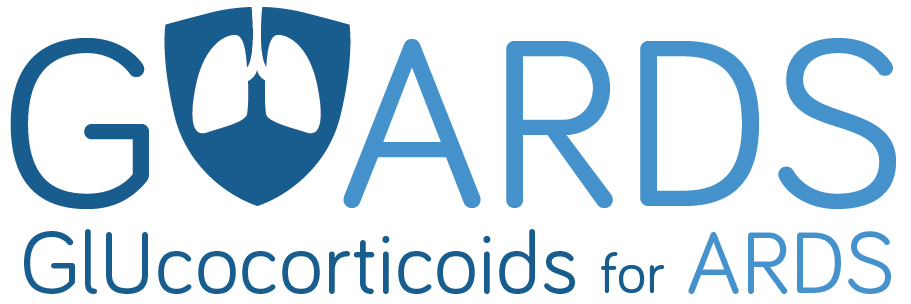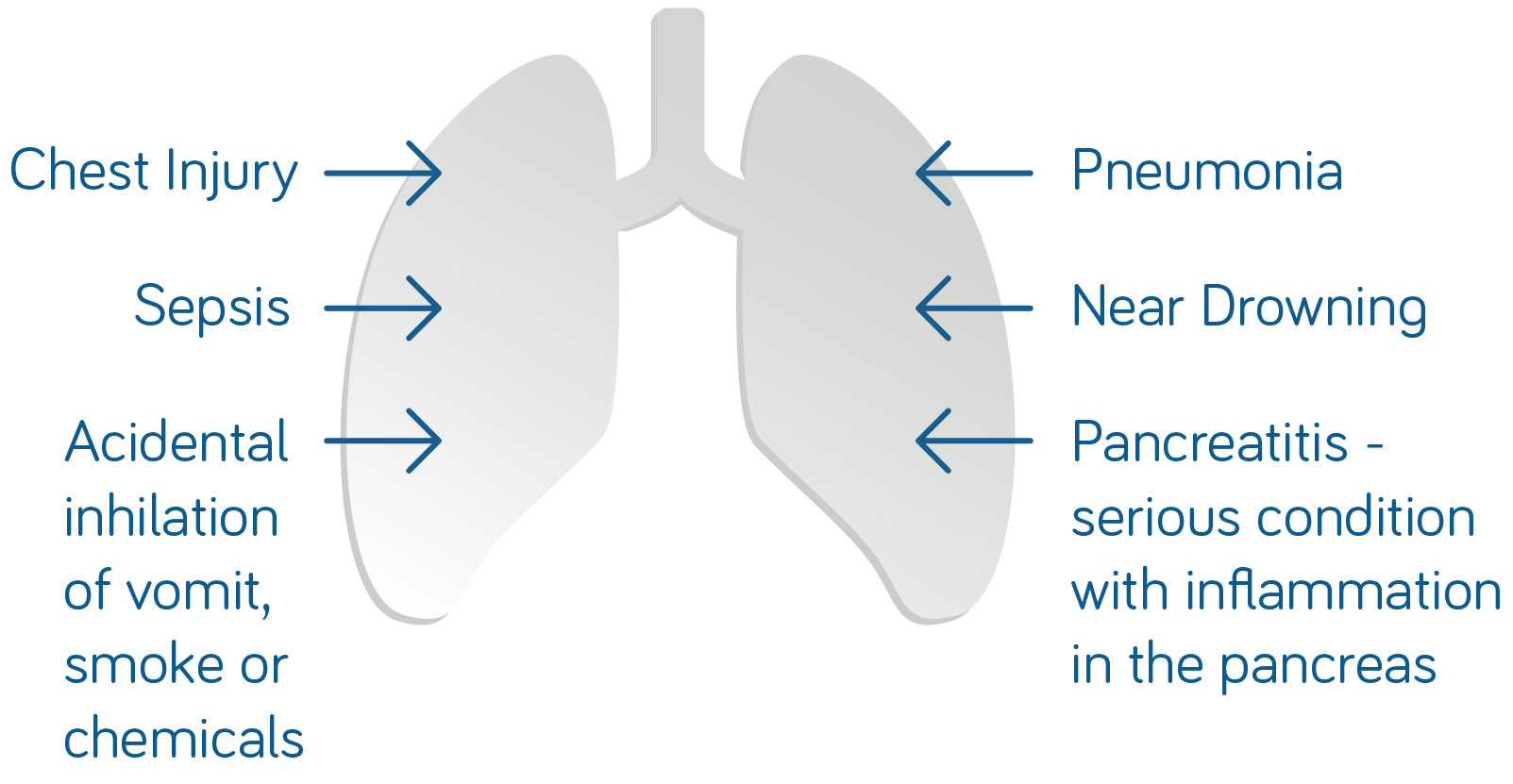
Acute Respiratory Distress Syndrome
Acute Respiratory Distress Syndrome is a life threatening condition where the lungs cannot provide the body’s vital organs with enough oxygen.
It is usually a complication of a serious health condition meaning people are already in hospital when they develop ARDS. Patients are treated within intensive care units and will have support from machines to help them breathe. ARDS is common with 1 in 4 adults in intensive care units developing the condition. All age groups are affected with high mortality rates. Patients who survive and leave intensive care have a long-term reduction in their quality of life and often attend their doctor or hospital more often than they did before.
What causes ARDS?
ARDS happens when the lungs become severely inflamed from an infection or injury. The inflammation causes fluid from nearby blood vessels to leak into the tiny air sacs in your lungs, making breathing increasingly difficult.
The lungs can become inflamed after:
Click image to view larger
Diagnosing ARDS
There’s no specific test to diagnose ARDS. A full assessment from the clinical team looking after a patient is needed to identify the underlying cause and rule out other conditions.
The assessment is likely to include:
- a physical examination
- blood tests to measure the amount of oxygen in the blood and check for an infection
- a pulse oximetry test, where a sensor attached to your fingertip, ear or toe is used to measure how much oxygen your blood is absorbing
- a chest X-ray to look for evidence of ARDS
- an echocardiogram – a type of ultrasound scan that’s used to look at your heart and nearby blood vessels
Treating ARDS
Currently there are no drugs that cure ARDS.
Over the last 30 years, various drug treatments have had only limited success in reducing the inflammation seen in ARDS patients.
A research study in Spain (DEXA-ARDS trial) looked at using Dexamethasone, a cheap, anti-inflammatory steroid drug, as a treatment and showed that it may help patients survive.
So why investigate further?
The results of DEXA-ARDS are encouraging but highlights some challenges before dexamethasone should be rolled out across the NHS to treat ARDS.
These are:
- The DEXA-ARDS trial had a relatively small number of patients (<300)
- It looked at the number days the patient was not on a ventilator at 28 days after starting the trial
- Usual care may differ between Spanish and UK health care
How GuARDS will address these challenges
- It will be a large study of up to 1708 people.
- Patients will be recruited from across the UK from around 60 ICUs
- We will follow up with patients for 6 months – this allows us to study survival rates from the treatment but also gives information on the longer term health of ARDS patients.
The NHS needs this information to decide if the treatment should be used routinely for ARDS.
